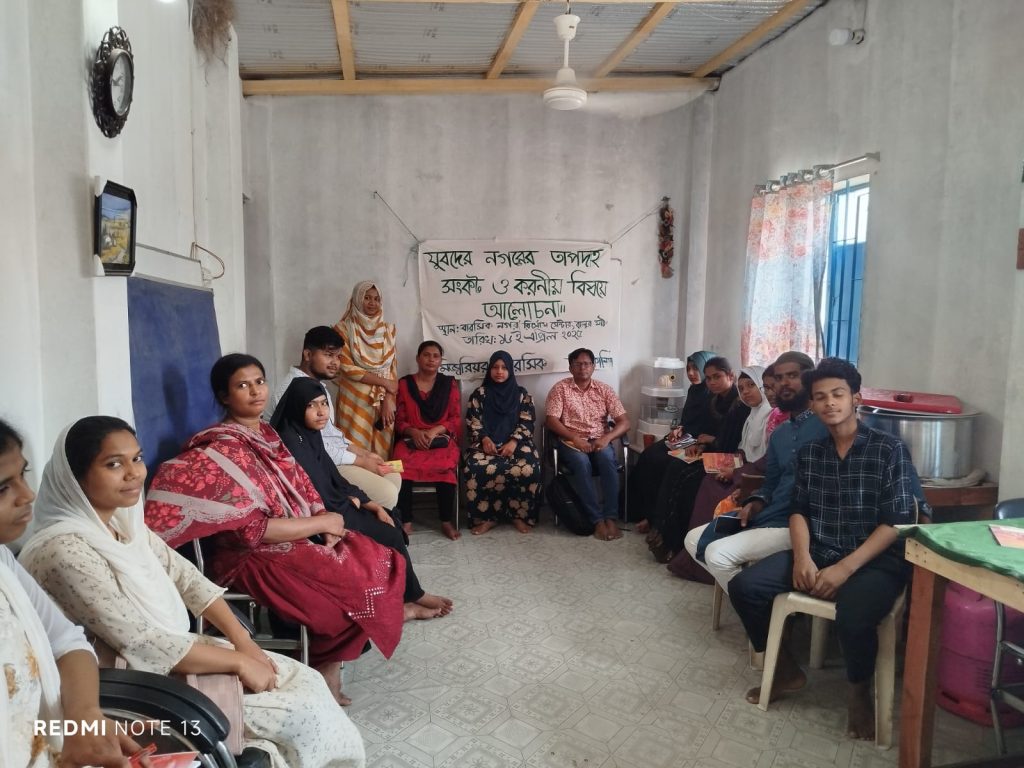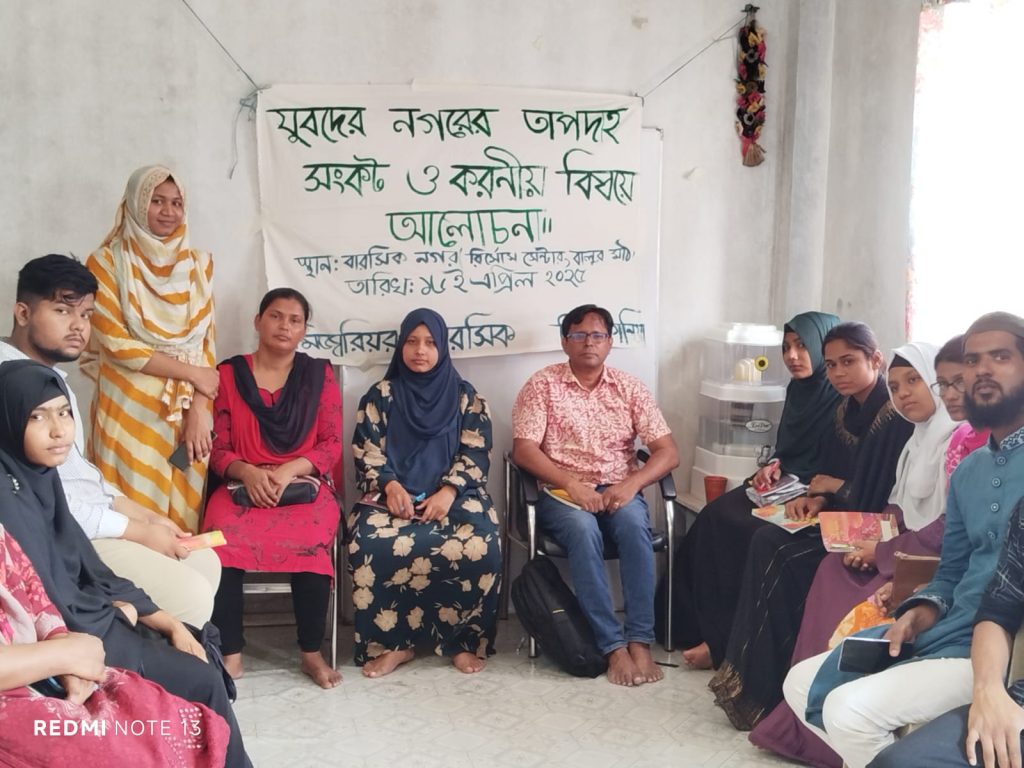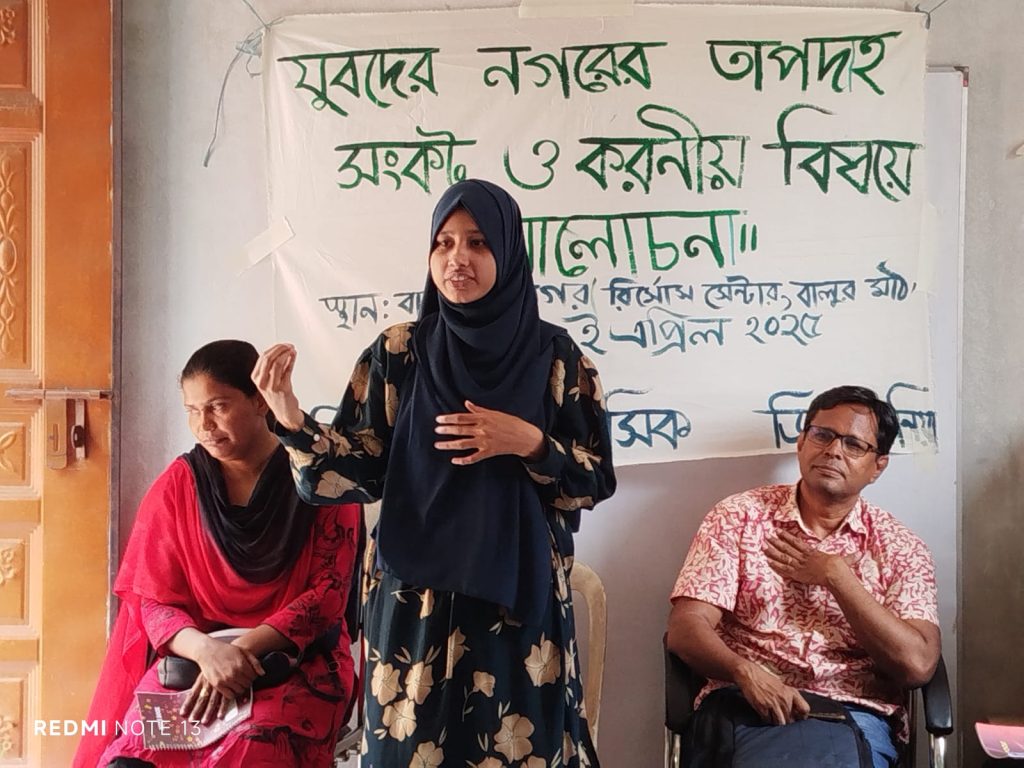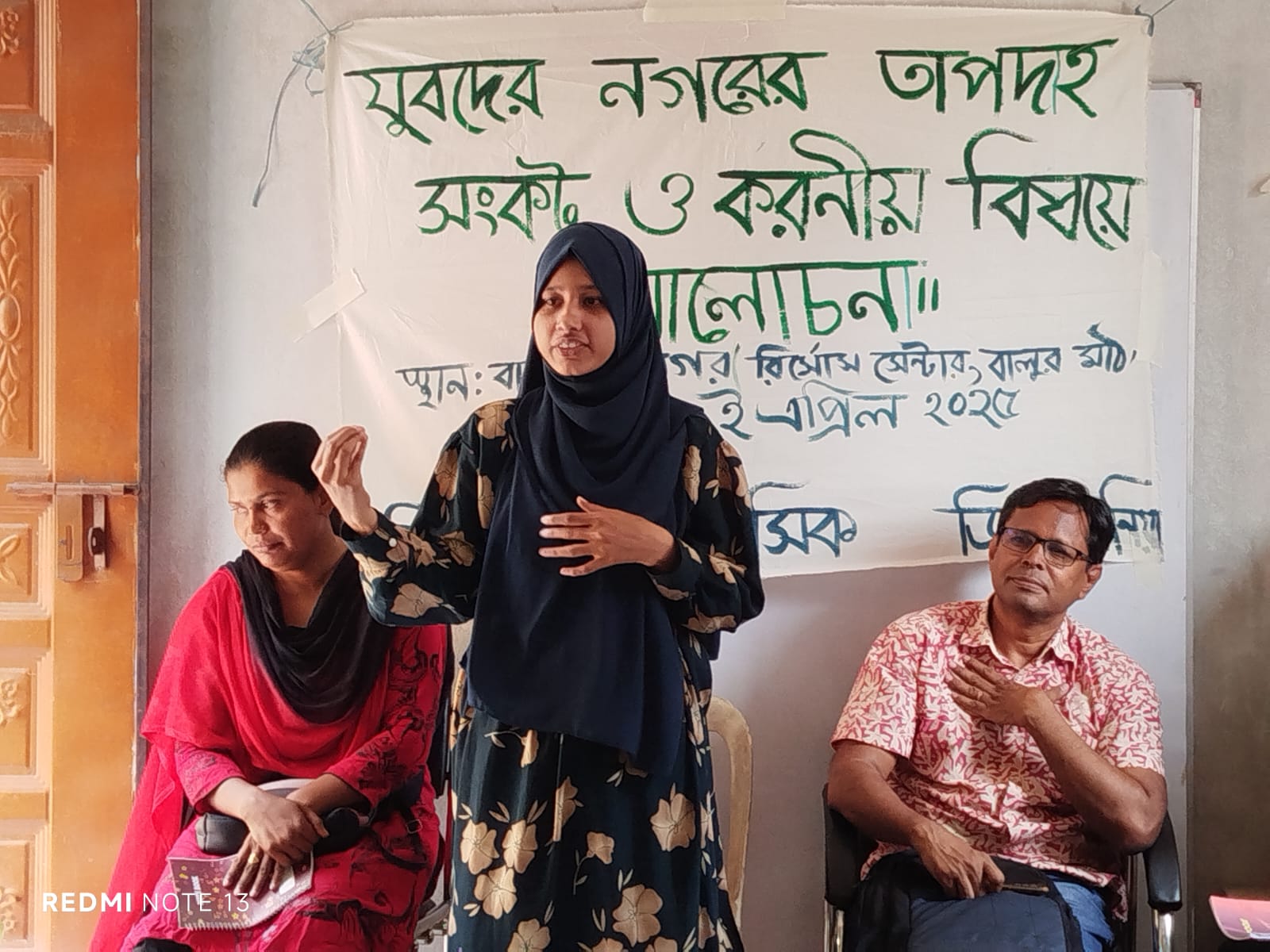Md. Jahangir Alam from Dhaka
A discussion meeting titled “Urban Heatwave Crisis and Youth Responsibilities” was held recently in Dhaka Urban Resource Center, located in Balur Math area of Hazaribagh, under Dhaka South City Corporation.

The meeting was presided over by Moyna Begum, a frontline activist fighting for the rights of low-income urban dwellers from the Mohammadpur area. Key speakers included Mr. Jahangir Alam coordinator of BARCIK and Runa Akter. The session was moderated by Hena Akter Rupa, Assistant Program Officer of BARCIK. Youth organizer Md. Saddam Hossain also attended the meeting. A total of 15 youth representatives from areas such as Chand Udyan, Mohammadpur Beribadh, Bou Bazar, Balur Math, Baroikhali, and Jhauchar participated in the event.
Speakers noted that April is the warmest month in Bangladesh, with temperatures in Dhaka reaching 43°C last year. This heat forced the government to close educational institutions and restrict public movement. The heatwave affected not just Bangladesh, but also neighboring countries like India, Pakistan, and others in South Asia.

The main causes of the heatwaves were identified as climate change and unplanned urbanization. The speakers criticized current urban development for being centered on the rich, excluding the needs of lower-income populations. Limited wetlands and green spaces, excessive construction, and widespread air conditioner use were cited as contributors to rising urban temperatures.
Particularly vulnerable to heatwaves are the urban poor, especially those living in slums or on the streets. In homes made of tin and plastic, daytime temperatures are unbearable, while at night, heat radiated from urban infrastructure and AC units prevents them from resting, often leading to health issues and reduced income.
Runa Akter, BARCIK field facilitator, emphasized how urban heat is causing water scarcity and pollution, with an increase in E. coli bacteria in water sources, leading to waterborne diseases. She urged youth to invent and promote new technologies for rainwater harvesting and alternative water sources.
Youth representative Tania Akter added, “If we can make this city livable and beautiful, we’ll all be able to thrive here. The time to act is now.”

Speakers called on youth to take a leading role in making cities livable and environmentally friendly. Recommendations included: Massive tree plantation across the city and restoration of canals, excavation and pollution control of rivers surrounding Dhaka, planting dense, leafy trees like banyan and fig trees in parks, establishing cloud burst parks to simulate artificial rain and cool urban areas and creating temporary shelters with fans or ACs in open spaces for street dwellers
To conclude the event, youth organizer Md. Saddam Hossain presented a youth action plan, dividing responsibilities among participants.

